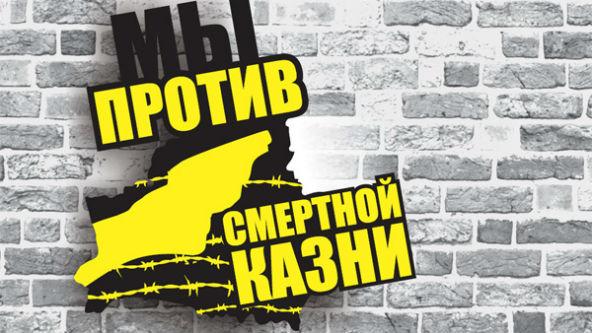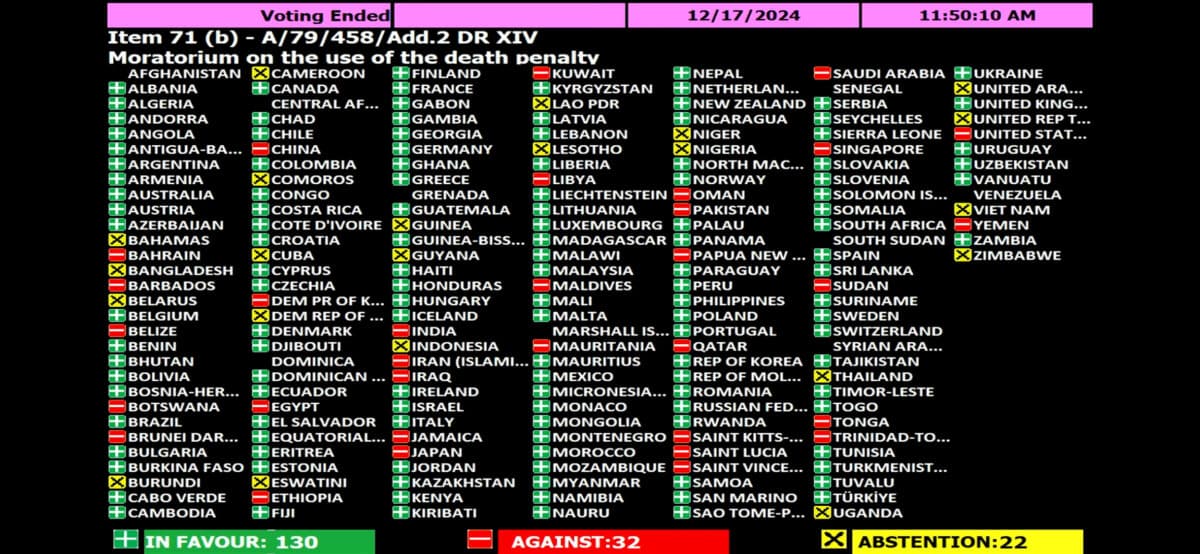
Belarus ends more than one year without execution
Abolition
April 22, 2014 update: A prisoner was executed in Belarus this month, Viasna reported on April 18. “Death convict Pavel Sialiun is said to have been executed one of these days. Meanwhile, his complaint is still pending before the UN Human Rights Committee. This means that Belarus has once again breached its international obligations,” the organisation said on its website.
In 1977, Nobel peace prize-winner Andrei Sakharov declared his abolitionist views in an open letter to Amnesty International’s Conference on the Abolition of the Death Penalty. Some 37 years later, his words still reverberate in the modern context: “I am convinced that not only those who stand trial, but society as a whole and its every member individually bear responsibility for the crimes committed.” A.Sakharov called the death penalty “a violent and immoral institution that was plotting to weaken morality and law of the society”. The situation hasn’t changed much in Belarus since the Soviet era. The words of the famous Soviet scholar and human rights defender refer equally to modern Belarusian society. The death penalty’s inefficiency as a tool against terrorism or as a deterrent for potential perpetrators, the high probability of judicial errors, the cases of rejected pleas by defence lawyers and private lawsuits by mothers of death row prisoners— Sakharov mentioned all these and many other facts in support of abolition of the death penalty in the USSR.
Today’s Belarusian human rights activists underline them again in courageous speeches and written statements.
International recognition
One of them is Ales Bialatski, head of the human rights group Viasna and vice-president of the International Federation for Human Rights (FIDH). A follower of Sakharov, Bialatski has been struggling for human rights in the USSR and Belarus for about 30 years and his work has been recognized by numerous international prizes.
On 2 April, the Swedish organization Civil Rights Defenders named Bialatski Defender of the Year 2014. He was arrested in August 2011 and sentenced to four and a half year in prison three months later for “concealment of income on a large scale”. In custody, he wrote literary essays and articles which were published in 2013 in a 455-page book, “Enlightened by the Belarusian Issue”, which was banned as it “could damage the image of the Republic of Belarus”.
Viasna is a core abolitionist organization in Belarus. Five years ago, in cooperation with Belarusian Helsinki Committee and Amnesty International in Minsk, they initiated the campaign “Human Rights Defenders against the Death Penalty in Belarus”. Its coordinator, Andrei Poluda, believes that the Belarusian campaign increased efficiency and effectiveness in supporting the abolitionist movement.
The three main vectors of the campaign include: legal support (on national and international levels); social work with the families of those sentenced to death and executed; and information activities for the media and the population. Human rights defenders, lawyers, volunteers, members of various NGO, people in the public eye and common citizens are united in the campaign with one single object—to obtain a moratorium on capital punishment as a first step towards the abolition of the death penalty.
Information efforts reaching the public
Since 2009, much has been to disseminate information on the death penalty in Belarus. Several documentaries have been shot and transmitted via internet channels. Thanks to the book “Firing Squad” and interviews given by former chief death row warden Oleg Alkaev some light was shed on the executions carried out in the 1990s in the “Minsk remand #1” prison. And three animated films were released in 2013 under the umbrella of the campaign: “The Queue”, “Executioner”, and “Flight” (below).
Campaign corrdinator Andrei Poluda notices the first positive changes in society: “For us, an excellent indicator of our work’s effectiveness is the recently growing interest among the media and society for the subject of capital punishment in our country. This interest generates serious debates and discussions. As we know, from the clash of opinions emerges the truth. And if this subject is discussed by citizens, our society matures gradually”.
Such changes in society, illustrated by the results of the latest opinion poll, make abolitionists hopeful that Belarus may a move towards reconsidering the death penalty.
You ask me what I would have changed in my life if they had set me free. I would have dedicated my life to my kids, my beloved wife and my parents, to my best friend who is like my brother… If I had weighed all pros and cons (but not regarding “money, me and my friends” as a basis), if I had only thought “what if…”, “what would happen to those whom I love and care”, I would definitely have not been here. That’s the point, in all these “what if”. Only I am to blame.
Extract from the letter written by Andrey Zhuk, sentenced to death in 2009, to Irina Tolstik, one of the coordinators of the campaign Human Rights Defenders against the Death Penalty in Belarus. When he was writing the letter, the 26-year-old prisoner did not know that he would be executed within one month.







